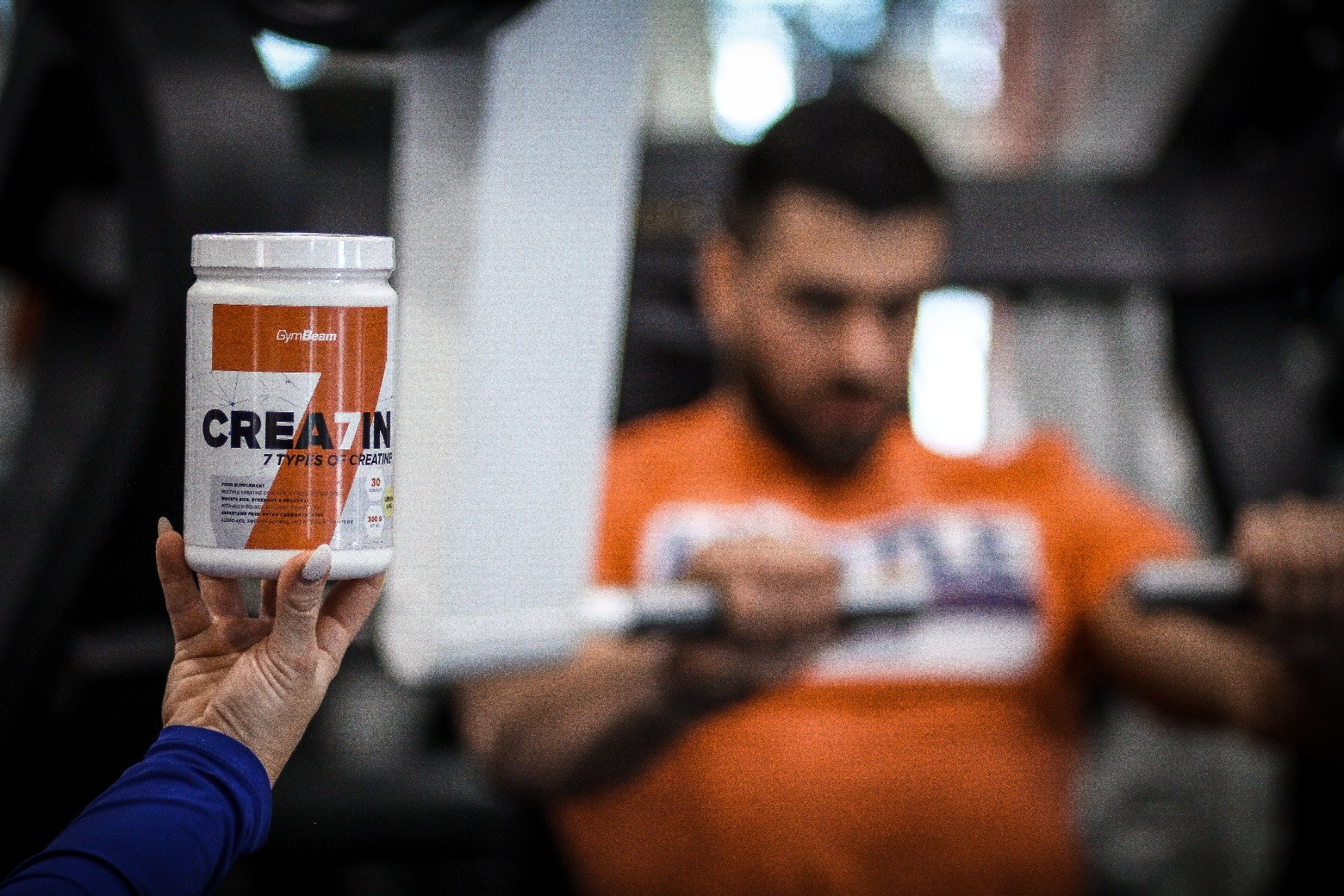What Is Creatine And How Does It Work For Muscle Growth?

Table of Contents
What is Creatine and Where Does it Come From?
Creatine's Natural Occurrence
Creatine is naturally produced in the liver, kidneys, and pancreas. It's also found in small amounts in certain foods, primarily red meat and fish. Its primary role in the body is to help produce adenosine triphosphate (ATP), the main source of energy for muscle contractions. Without sufficient ATP, your muscles wouldn't be able to function.
- Foods rich in creatine: Red meat (beef, pork), salmon, tuna. However, the amounts in food are relatively low compared to what you'd get from supplementation.
- ATP (Adenosine Triphosphate): ATP is the energy currency of cells. It fuels muscle contractions, allowing you to lift weights, run, and perform other physical activities. Creatine plays a crucial role in the rapid regeneration of ATP, particularly during high-intensity activities.
Creatine Supplementation
Creatine supplementation provides a concentrated dose of this crucial compound, helping to increase its levels in your muscles. Several forms of creatine supplements exist, each with varying degrees of bioavailability (how well it's absorbed and utilized by the body):
- Creatine Monohydrate: The most researched and widely used form of creatine, known for its effectiveness and affordability.
- Creatine HCL (Hydrochloride): Claimed to have better absorption and reduced gastrointestinal side effects compared to monohydrate, but research is still ongoing.
- Creatine Ethyl Ester: Another form with claims of improved absorption, but its effectiveness compared to monohydrate requires further study.
The body absorbs and utilizes creatine by transporting it into muscle cells, where it's stored and used for ATP regeneration.
How Creatine Works for Muscle Growth
Creatine and Muscle Cell Hydration
Creatine supplementation leads to increased water retention within muscle cells. This isn't just water weight; it's crucial for muscle growth and function. The increased volume within muscle cells creates a more anabolic (muscle-building) environment.
- Benefits of increased cell hydration: Enhanced muscle protein synthesis, improved nutrient delivery, and increased muscle size and strength.
- Creatine plays a crucial role in improving muscle protein synthesis, the process by which your body builds and repairs muscle tissue.
Creatine and ATP Production
Creatine's primary mechanism for muscle growth is its role in enhancing ATP regeneration. During high-intensity activities, ATP is used up quickly. Creatine helps to replenish ATP stores faster, allowing you to perform more reps and sets with greater power.
- ATP and muscle contractions: ATP provides the energy needed for the myosin and actin filaments in your muscles to interact, causing contraction.
- Improved ATP production and muscle growth: More ATP means more energy for intense workouts, leading to greater muscle damage (which stimulates growth) and enhanced protein synthesis.
Creatine and Muscle Protein Synthesis
Creatine's contribution to muscle protein synthesis is multifaceted. It not only enhances the environment for protein synthesis through cell hydration but also indirectly stimulates signaling pathways that promote muscle growth.
- Importance of protein synthesis for muscle growth: Muscle protein synthesis is the process of building new muscle tissue. Without it, you can't gain muscle mass.
- Synergistic effects with resistance training: Creatine works best when combined with a resistance training program. The increased energy from creatine allows you to perform more intense workouts, triggering greater muscle growth.
Benefits of Creatine Supplementation
Increased Strength and Power
Numerous studies show creatine significantly increases strength and power output. Individuals experience improvements in short bursts of high-intensity activity like sprinting and weightlifting. [Cite relevant research studies here].
Enhanced Muscle Growth
Creatine is widely recognized for its muscle hypertrophy (growth) benefits. The increased cell volume, enhanced ATP production, and stimulated protein synthesis all contribute to noticeable muscle gains. [Cite relevant research studies here].
Improved Athletic Performance
The enhanced energy and power provided by creatine translate to improved performance in a variety of sports and activities, including weightlifting, sprinting, swimming, and cycling. [Cite relevant research studies and specific examples here].
Cognitive Benefits (Optional)
Some research suggests potential cognitive benefits of creatine supplementation, particularly in relation to memory and learning. However, more research is needed to confirm these effects conclusively. [Cite research if available].
Potential Side Effects and Precautions
Water Retention
Water retention is a common side effect of creatine supplementation. It’s usually temporary and harmless, often disappearing once supplementation is stopped.
Gastrointestinal Issues
Some individuals may experience mild gastrointestinal issues such as bloating, diarrhea, or stomach cramps, especially when starting creatine supplementation. These side effects are typically mild and resolve quickly.
Kidney Function (Address Concerns)
Concerns about creatine negatively impacting kidney function are largely unfounded for healthy individuals. Well-designed studies have not demonstrated adverse effects on kidney function in healthy populations. However, individuals with pre-existing kidney conditions should consult a doctor before using creatine.
Consult a Healthcare Professional
It's always advisable to consult a doctor or registered dietitian before starting any supplement regimen, especially if you have pre-existing health conditions or are taking other medications.
Conclusion
Creatine's benefits for muscle growth are well-established, primarily through its role in enhancing ATP production, increasing cell hydration, and stimulating protein synthesis. By improving strength, power, and overall athletic performance, creatine can significantly contribute to your muscle-building goals. Remember to combine creatine supplementation with a consistent resistance training program and a balanced diet for optimal results. Ready to experience the power of creatine for yourself? Consult your doctor and start maximizing your muscle growth potential today!

Featured Posts
-
 Real Salt Lake To Face San Jose Earthquakes In Mls Season Opener
May 16, 2025
Real Salt Lake To Face San Jose Earthquakes In Mls Season Opener
May 16, 2025 -
 Dodgers Future A Closer Look At Kim Outman And Sauers Development
May 16, 2025
Dodgers Future A Closer Look At Kim Outman And Sauers Development
May 16, 2025 -
 Nhl Picks Maple Leafs Vs Predators March 22nd Game Preview
May 16, 2025
Nhl Picks Maple Leafs Vs Predators March 22nd Game Preview
May 16, 2025 -
 2025 San Diego Padres Baseball Full Broadcast Schedule Revealed
May 16, 2025
2025 San Diego Padres Baseball Full Broadcast Schedule Revealed
May 16, 2025 -
 Stock Market Valuations Why Bof A Believes Investors Shouldnt Be Concerned
May 16, 2025
Stock Market Valuations Why Bof A Believes Investors Shouldnt Be Concerned
May 16, 2025
